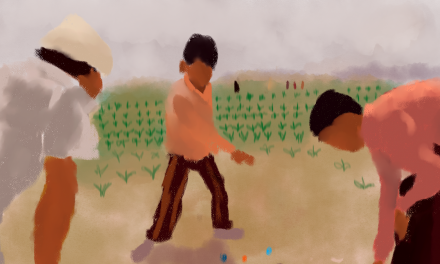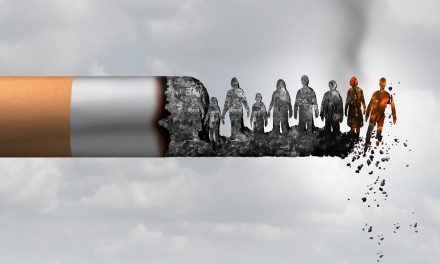“I just don’t understand how they can just so blatantly close the hospital. Where’s the humanity? What are people supposed to do?”
When a hospital closes, the collateral damage is massive, with ongoing ripple effects that reach far and wide. For the one in five Americans who live rural, the impact is deafening. There have been 136 rural hospital closures in the U.S. since 2010. Missouri and Kansas have each lost seven since 2014. If you live rural, you’ve seen it and felt it. If you don’t, it’s easy to dismiss these closures as a rural problem.
The Where it Hurts podcast tells the story of this collateral damage, and the tragic impact on the people of Fort Scott, Kansas. This narrated, award-winning podcast was featured on NPR in 2020. The first season includes a seven-part series chronicled by Kaiser Health News journalist, and regular contributor to NPR’s All Things Considered, Sarah Jane Tribble. She masterfully tells the story of what happens after a hospital closes and how communities are left to pick up the pieces, and in some cases, left to die.
“This means a lot to me because as somebody from southeastern Kansas, I wanted to make sure that I brought the story to people in a way they could digest and understand,” Tribble said. “Maybe you grew up in an urban area. Maybe you have no connection with rural America whatsoever. Maybe you don’t even like the idea of leaving the comfort of an urban setting. But if we can bring the message to people who maybe have no reason to be interested in rural America, and share that message, then it helps to build empathy. It helps people relate, especially when you bring human voices to it.”
Southeastern Kansas and Bourbon County, where Fort Scott sits, has a high poverty rate – with one out of four children living in poverty. Tribble said rates of teen births, adult smoking, unemployment, and violent crime were higher in Bourbon County’s population of 14,000 than in other parts of the state. The uninsured rate is also high, worsened by the fact Kansas has yet to expand Medicaid. “University of Kansas experts would tell me that southeastern Kansas was one of the most troubling parts of the state of Kansas,” Tribble said, “which shocked me. As a kid, I didn’t think of where I grew up as troubling at all. I loved it.”
It was October of 2018 when Tribble found out that Fort Scott’s Mercy Hospital was closing. Not long before that, Mercy closed its Independence Hospital, which was about an hour and a half away from Fort Scott. Tribble pitched the story to her editors. There wasn’t much time. Mercy was slated to close on December 30, 2018. “My executive editor, Elisabeth Rosenthal, stopped me in the stairwell… ‘Can you get to Fort Scott before it closes?’”
It was the beginning of December and Tribble was headed to Kansas City. She had already made plans to travel back home to see her sister, Maggie, who was battling late-stage pancreatic cancer. As she reached the tarmac in Kansas City, she had several text messages. Maggie was in the hospital again, this time for internal bleeding. It was two weeks before Christmas and near the end of Maggie’s journey…
On the outside looking in
After Tribble spent time with her sister, she made the two-hour trek to Mercy Hospital, a 132-year-old Catholic hospital founded by nuns during the state’s pioneer days. It was around 10 p.m. when she drove up the winding path and saw the building’s signature glowing white cross. “It was beautiful,” she said. “I just sat there and stared at it.” She drove to another part of the hospital, parked, and watched what was going on inside. Santa Claus had just finished visiting with the staff’s children in the lobby – for the last time.
Tribble spent time in Fort Scott. She got to know the community, she listened to the people there, and she captured their stories. She had a front-row seat into the window of their lives. Tribble eventually made it back to her editors with a 2400-word article – in most cases too long for print. However, the article resonated with the editor. “She loved the characters,” Tribble said. “She loved the depth of the scenes. She related to it.”
That’s how Tribble’s piece got turned into a podcast, animated by a cast of real people with real stories to tell. She was sent back to Fort Scott, as a joint effort between NPR and Kaiser Health News, to cover how the community coped after their hospital closed. She tells the story of the people of Fort Scott and how this hospital closure left an indelible mark on the community while some battled terminal illnesses. She uncovers the human toll when lack of access makes health equity elusive. Tribble’s story begins here, with the once top executive for Mercy Hospital.
Rita Baker
Rita Baker is the former CEO of Mercy Hospital and was deeply connected to the Fort Scott community, having grown up just outside of the town. She went to nursing school there before spending time in the Kansas City area, but Mercy Hospital is where she wanted to be. She loved the community and stayed active in civic activities.
Baker was no ordinary CEO. She was emphatic about getting to know her staff. She often spent her off time making sure she recognized her staff personally. “You know how your heart fills up when you get a handwritten card or letter in the mail?” she tells Tribble. “It means they thought of you and cared enough to actually do something.”
Baker said the real challenge was matching the card with the employee. “So I knew I had some guys who were always deer hunters, so when I came across a card with appropriate scenes on it, I would grab that card.”
Tribble says, “But that means you knew each employee well enough to figure out which card fit their personality… That’s 400 people.”
“That’s part of being a good leader, is to know your people,” Baker said.
With the hospital closing, there were no more cards to match, address, or hand out. That was over. The warm fuzzy feeling that came with receiving those cards was over, too.
Things had been tough for a while. Cuts were made to critical services. But the news that Mercy Hospital was closing still surprised everyone, even its doctors. Baker’s fall from grace was fast and hard. “I don’t even like going out in the community anymore because I get confronted all of the time,” she said. “Someone confronted me at Walmart, you know. ‘How could you let this happen?’”
Tribble talks about riding with a volunteer during the early stages of her reporting for this story. The volunteer mentioned how you couldn’t turn the corner in Fort Scott without running into someone diagnosed with cancer.
Tribble thought of her sister, who grew up nearby and was also suffering from cancer. Baker, realizing the need was great, added a cancer center years prior, headed by a doctor who traveled from Wichita weekly to manage it.
Karen Endicott Coyan and husband John
One patient was Karen Endicott Coyan, someone Tribble spent a lot of time with. She was once an executive at Mercy Hospital for more than 20 years. Tribble said Coyan’s job was to “squeeze money out of federal programs like Medicare and Medicaid.” She lost her job two years before the hospital closed when Baker made the first round of cuts as a hail Mary attempt to mitigate Mercy’s pending doom.
Now Coyan was headed an hour away to cancer treatment. Once, she only had to drive 10 or 15 minutes down a dirt road to Mercy’s cancer center for chemotherapy, until it closed unexpectedly. Now she had to find a ride or try to drive herself. Tribble describes Coyan’s pre-cancer treatment prep as she waits for a ride from her sister-in-law.
“She starts to put on diamond earrings,” Tribble said. “I can’t help myself. I ask her, is chemotherapy treatment worthy of diamond earrings?”
“I think so,” Coyan answered. “I think it is. I don’t know why it wouldn’t be. I mean, I’m not going to go over there looking like a sick person. I don’t like looking like a sick person. That’s just me. The vanity, I guess.”
Coyan’s husband John used to raise cows. As she battles cancer, he suffers from dementia. Tribble met the two early in her reporting through a volunteer group in Fort Scott. She was doing a story for NPR about the lack of specialty care in rural America and the challenges it posed for patients.
“Karen was the perfect example,” Tribble said. “She talked about the cost problems, the cost of her medication, the coverage. She knew all the details because she had been an administrator. As the year went on, it became clear that Karen wasn’t just taking care of herself, she was also taking care of her husband.”
Tribble said one of the things that stayed with her about Coyan’s story is how far she had to travel for a cancer treatment that consisted of a shot. Perplexed, Tribble made several calls searching for answers. She called everywhere to find out why the shot couldn’t be brought to Coyan. It turned out to be a Medicare coding issue, which in turn came back to money.
“I thought that was interesting because these challenges that we’re facing in rural America often have to do with compensation, and I think that conversation, particularly at a national level, tends to get into the weeds on compensation and how reimbursements should work,” Tribble said. “And perhaps that’s a good thing that it gets into the weeds, but at the same time, I think there are larger solutions that could be at play…”
Wading through grief
After spending hours with Karen and John Coyan, Tribble found herself about an hour south of Fort Scott on the porch at her parents’ house.
“I love that my parents still live on the same wide-open land where I grew up,” Tribble said. “In the mornings, I sit here with a cup of coffee, and I can hear the world slowly waking up. That’s when I have time to think. My thoughts here always include Maggie. My sister was only 20 months older than me, but she always took care of me. As kids, we roamed these pastures together, finding adventures in the creek beds and nearby abandoned houses. Even in our 30s and 40s, when we lived different lives a thousand miles from each other, we relished the quick phone chats. ‘Hey Sarah-Sarah, it’s Maggie. I was trying to give you a call. Call me whenever you have the chance, okay? Love you. Bye.’”
Maggie lived just outside of Kansas City near a hospital where she received cancer treatments, Tribble said. However, for nearly two years, she traveled to participate in any clinical trial she could get into. She went to the Mayo Clinic and traveled to Boston and Baltimore to get the best pancreatic treatment available. Tribble said it worked for a while, but Maggie never gained full remission. Yet, she lived longer than expected for her diagnosis.
“Cancer is awful and expensive,” Tribble said, “and you need experts in big cities to help you. In the end, Maggie came back here. Home. She sat right here on this porch one last time and took in this beautiful world. She was 46.”
Tribble said as she continued her reporting she realized that everybody was experiencing stages of grief alongside her, too. Maggie had died in January, and in May of the same year, she was interviewing Baker – who was also grieving the loss of the hospital, her role there, and the loss for the staff and the community it served. Coyan was grieving. She was once vital and active, Tribble said, and now she wasn’t. She was dying, and her husband’s dementia would make for an arduous decline.
Hearts were heavy, yet, the story was only beginning to unfurl. Tribble’s personal loss collided with the loss of Mercy Hospital and the lives of those she would soon meet. Her loss is the well she drew from to tell this story in a way that honored the people she covered, and honored their personal battles that are too often exacerbated by health care systems and policies ill-equipped to meet the intricate needs of rural America.
Sarah Jane Tribble featured the Where it Hurts podcast during the final keynote address of the Missouri Rural Health Association’s Get Link’d Conference in August 2021. Part Two of Unmerciful continues with additional scenes from the podcast and stories about the people of Fort Scott, Kansas. Stay tuned.








